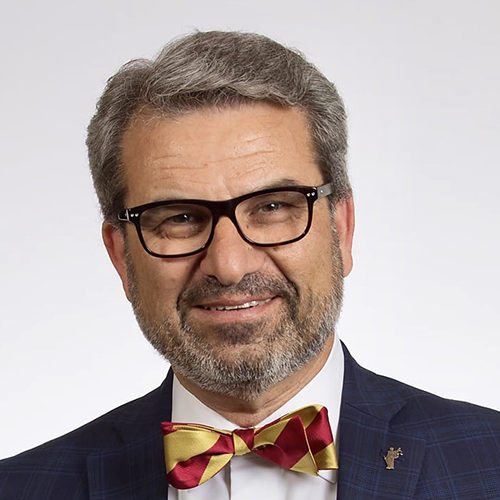Share This Article
Yesterday President Putin ordered Russian reservists to mobilize and hinted at using weapons of mass destruction in Ukraine. President Aliyev stepped up his military operations to force Armenia to cede land in the Syunik Province. He aims to connect the isolated Nakhichevan to Azerbaijan and Turkey. These authoritarians are violating international law because they can. As for the rest of us, we learned nothing from history.
Historical Background
Throughout the 1930s, Nazi Germany pursued an aggressive foreign policy. In early March of 1938, Nazi Germany annexed the neighboring country of Austria. The Nazi government violated the Treaties of Versailles and Saint Germain by annexing Austria. These treaties expressly forbade Nazi Germany’s unification with Austria. This act of territorial aggression and violation of international law (treaties) was the first step in atrocities to come. The European powers and the United States accepted this “connection-Anschluss” as a significant step to appease Hitler. Consistent with all other historic authoritarians, Adolf Hitler continued his expansion in Europe by repeatedly violating the sovereignty of his neighbors.
We know the rest of this painful and shameful story.
After the slaughter of millions of people on June 6, 1944, some six years after the appeasement, concentration camps, and unspeakable brutalities, the air and sea forces of the allied armies restored order by liberating Europe starting from the beaches of Normandy. The Allies held the Nuremberg trials against representatives of defeated Nazi Germany for plotting and carrying out invasions of other sovereign nations, war crimes, and crimes against humanity. The International Military Tribunal at Nuremberg labeled these crimes of aggression as the “supreme international crime.”
World War II ended with most European nations in ruins. Representatives of 50 countries gathered in San Francisco to create what became the United Nations (UN). The first charter, oriented toward seeking peace after years of war, was ratified by China, France, The Soviet Union, the United Kingdom, the United States, and others.
The Harsh Reality Today
Despite the UN efforts after the harsh lessons of WWII, this story of authoritarians violating their neighbors’ sovereignty sounds all too real in 2022. Accordingly, the escalation of violence and hatred is remarkable. The self interest of nations exposes their hypocrisy as they remain on the sidelines.

Russia’s invasion of Ukraine and Azerbaijan’s incursion into Armenian territory violate, among other agreements, Article 2(3) of the U.N. Charter, where all members are required “to settle their international disputes by peaceful means.” Also, Article 2(4), a central tenet of the charter, requires UN member states to refrain from the “use of force against the territorial integrity or political independence of any state.”
What is the appropriate number of innocent Ukrainians and Armenians that need to die for the world order to be restored?
My country of the United States is preoccupied with mid-term elections. We are also busy calling each other names based on political party affiliation. The EU is concerned about its immigration crisis and energy shortfalls due to its dependence on Russian and Azerbaijani natural gas. The UN is preoccupied with its climate action plans. In the meantime, the graves are piling up in these two nations. Climate change is an existential threat. However, how will we explain our inaction today against human suffering, unashamed violation of international law, and these crimes of aggression to our future generations? Who will say enough is enough and reclaim the world order? Who will prosecute these new “supreme international crimes?”

Frank V. Zerunyan is a Professor of the Practice of Governance at the University of Southern California (USC) Sol Price School of Public Policy (USC Price) and Director of Executive Education at USC Price Bedrosian Center on Governance. Professor Zerunyan oversees USC’s Reserve Officers’ Training Corps (ROTC) as the Director and University Liaison for the U.S. Air Force, Army, Naval Reserves ROTC, and Nautical Science Programs.
Professor Zerunyan’s principal areas of expertise include governance, public-private partnerships, civic and ethical leadership, land use, medical regulation, negotiation, and executive education. He lectures locally and globally to build capacity and foster leadership among public executives worldwide. He is the author of books, book chapters, and many short articles published nationally, internationally, and on USC Price’s “Faculty Perspectives.” Professor Zerunyan is often quoted in the media and is a USC resource for journalists as an expert in governance and leadership. He is also an expert on public administration at the United Nations Innovation Branch (formerly Capacity Building Branch).
For his influential advisory role in the Republic of Armenia, he was awarded LL.D. Doctor of Laws – Honoris Causa by the Public Administration Academy of the Republic of Armenia. Professor Zerunyan designs curricula and teaches at the American University in Armenia, Yerevan State University, and the Vazgen Sargsyan Military University in Armenia, with an honorary rank of colonel. He also teaches for the U.S. Navy at the U.S. Naval Service Training Command.
Professor Zerunyan serves on the editorial boards of the Public Administration Scientific Journal for the Republic of Armenia and the Ukrainian Law Review. He is on the board of councilors of Anahuac University Law School, Xalapa, Mexico (Consejo Consultivo de la Escuela de Derecho).
Professor Zerunyan earned his Doctor of Jurisprudence (Doctor of Laws) degree from Western State University College of Law and his Bachelor of Arts degree from California State University Long Beach. He also completed his advanced legal education in Corporate Taxation at the University of Southern California Law Center (USC Gould). He is a graduate of the California League of Cities’ Civic Leadership Institute.
Professor Zerunyan, trained and practiced as a lawyer, is a four-term Mayor and Councilmember in the City of Rolling Hills Estates, California. He serves on several city, county, and regional policy boards and committees. He was also a gubernatorial appointee under Governor Schwarzenegger, serving 38 million medical consumers on the Medical Board of California.

